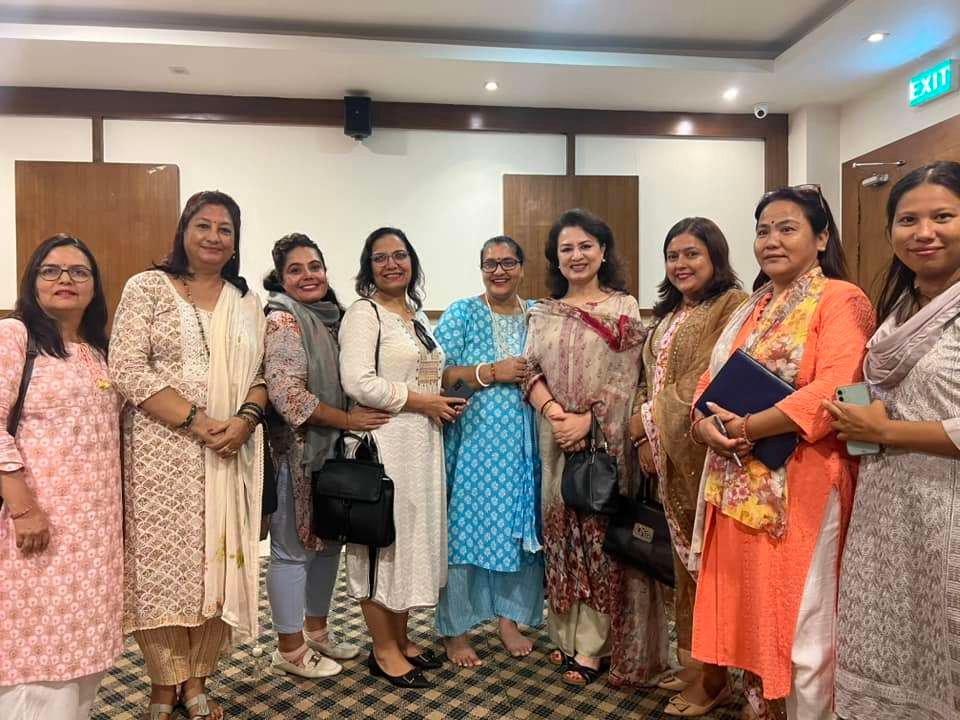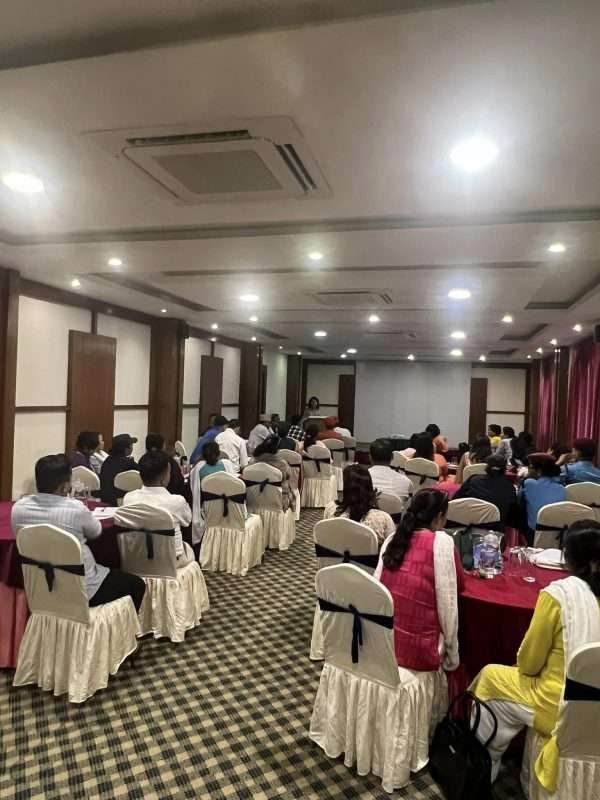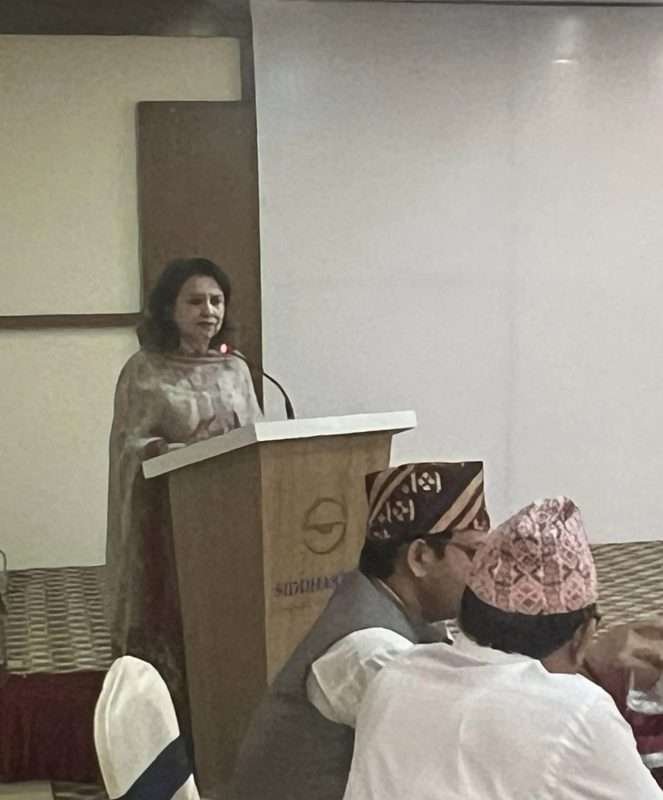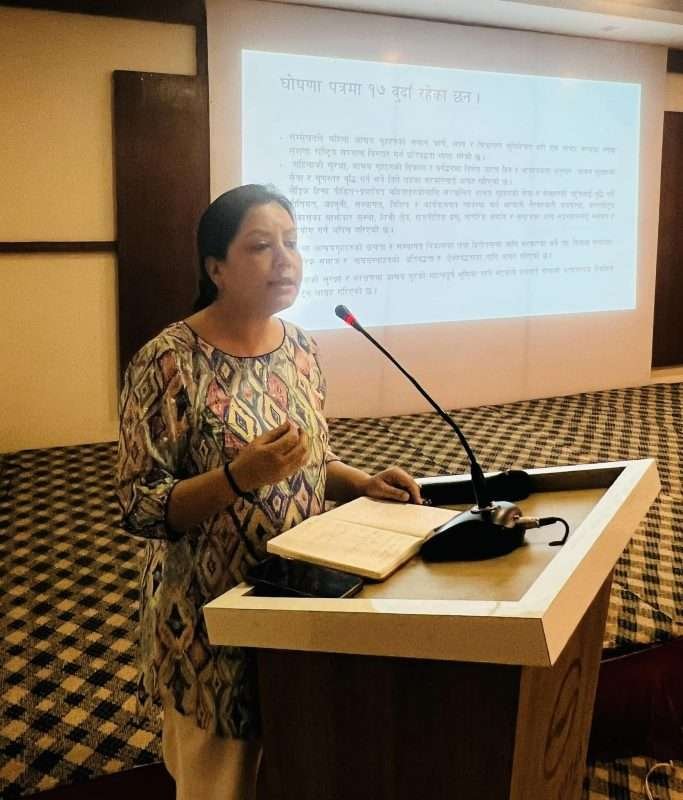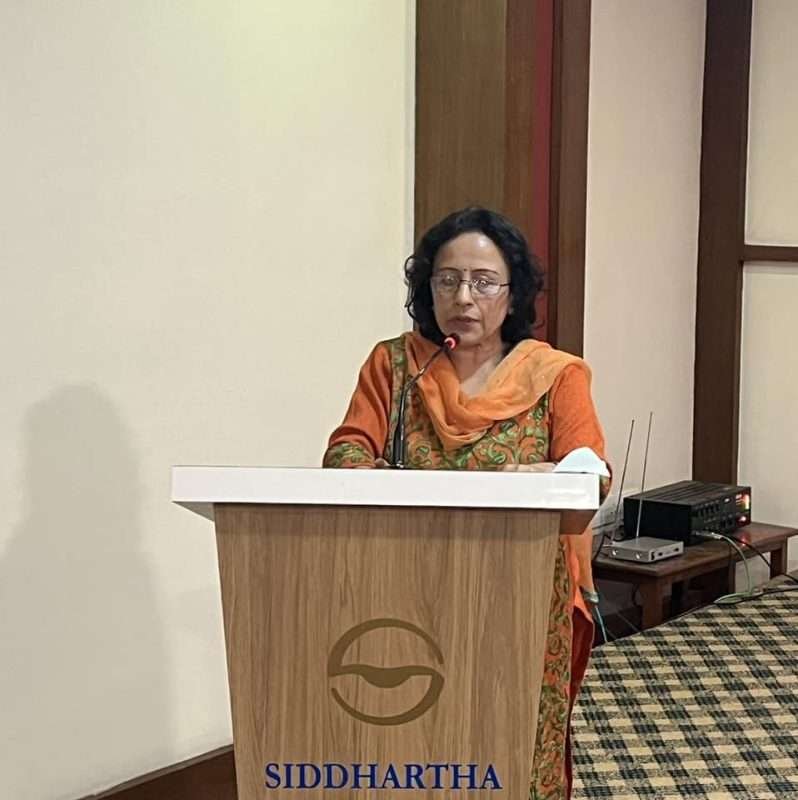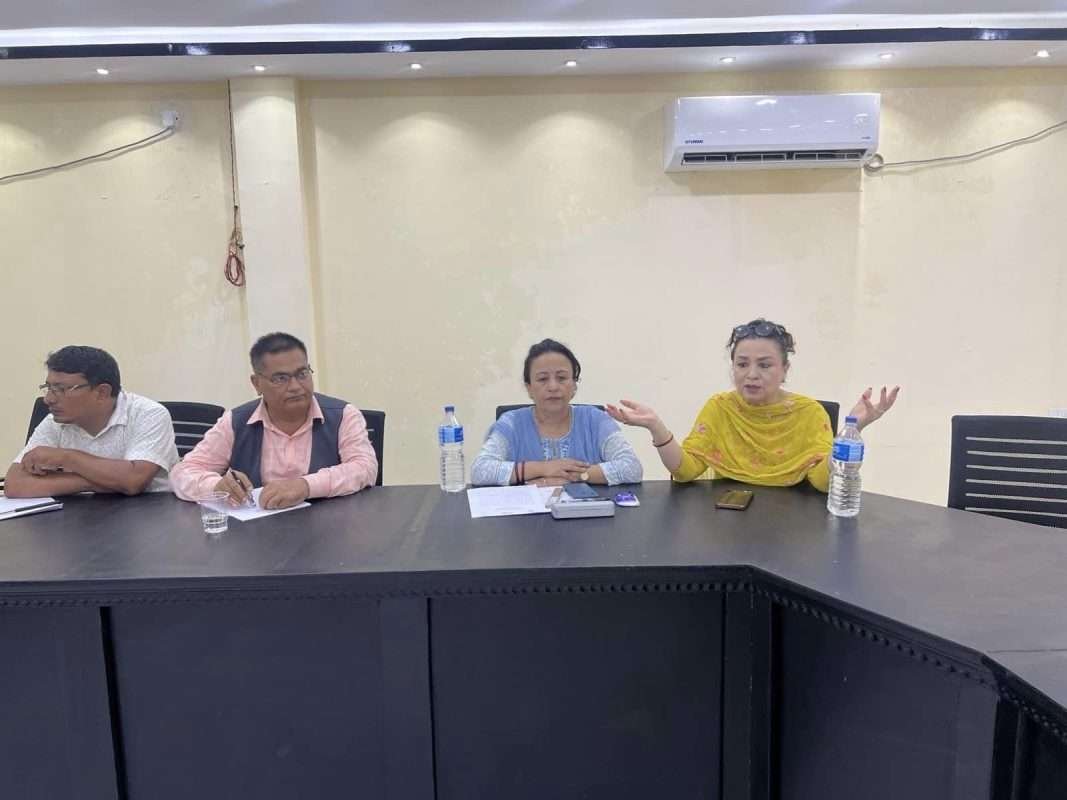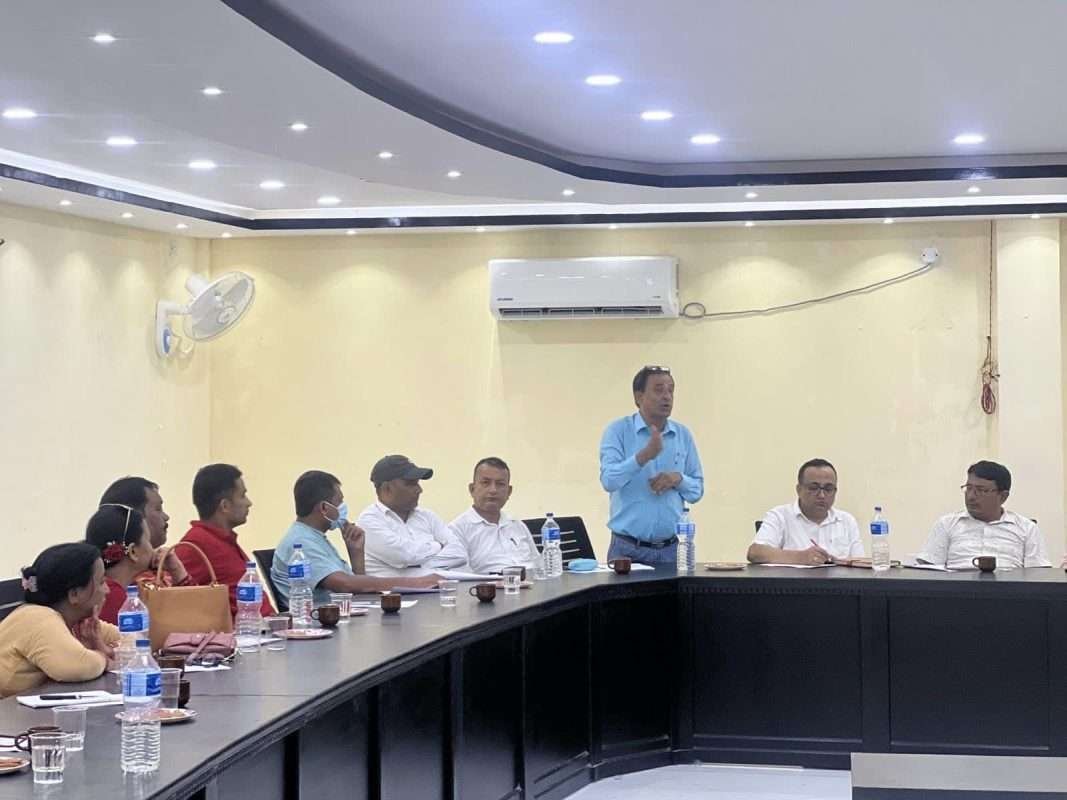Nepalgunj and Kapilvastu (August 15 & August 17) – Saathi recently shared the outcomes of the inaugural national conference held last June, known as the “Kathmandu Declaration.” The declaration’s key points were disseminated during events in Nepalgunj and Kapilvastu, where Saathi has been providing shelter services to women and girls facing SGBV.
Participants at the dissemination events emphasized the necessity for non-governmental organizations (NGOs) to extend their efforts beyond accessible regions and reach remote areas. They criticized the inflexible legal framework that often led to unjust outcomes, particularly for boys. One focal concern was the age-related legal definitions of consensual sexual activity. Complexities surrounding cohabitation practices and associated violence, paralleling workplace sexual harassment, were also highlighted.
The gathering advocated for a unified system of justice delivery in SGBV cases, emphasizing the importance of local governments conducting gender safety audits of public spaces. Incorporating gender issues and SGBV concerns into school curricula was deemed essential. The rise of non-consensual sharing of intimate content online was recognized as a new form of violence against women and girls.
Discussion participants expressed concern about the political manipulation of SGBV issues, often subjecting survivors to pressure from political figures. The lack of clarity in reporting mechanisms for SGBV cases was attributed to the ongoing process of federalization that have created of new agencies.
The forum emphasized the significance of initiating family dialogues to promote gender equality in raising sons and daughters. However, it was revealed that locally elected leaders sometimes engaged in unethical practices by facilitating negotiations between perpetrators and survivors outside of the formal legal system.
The issue of dowry-related violence remained a persistent challenge. Regrettably, women’s voices often continued to be marginalized by society and government officials.
Safe houses in districts were recognized as pivotal for addressing SGBV, with a call for better regulation of alcohol and drugs. The rise in cross-border criminal activities was attributed to the ease of alcohol production and sale, with individuals from neighboring India contributing to the problem.
The Kathmandu Declaration underscores the urgency of addressing these multifaceted challenges in order to combat gender-based violence and foster a safer environment for women and girls across the country.
